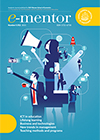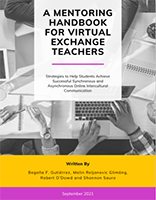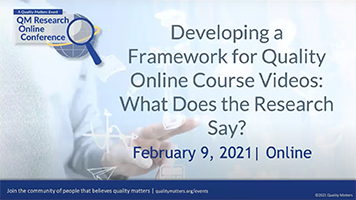Ukazał się nowy numer e-mentora. Zachęcamy do lektury.

It is my great pleasure to present the newest collection of papers. The diversity of the topics in the current volume reflects the ubiquity of technological progress. Among others, you will learn how modern technologies enable deaf people to take an active part in surveys, how students and graduates perceive the potential usefulness of Artificial Intelligence (AI) in the academic curricula of Finance and Accounting Courses, how open source software supports the implementation of social innovation in SMEs, and about the impact of remote work, resulting from the COVID-19 pandemic, on the functioning of Scrum teams.
Moreover, you can also read about the development of public policy on city center revitalization based on the Town Centre Management concept, the importance of structural capital for the intellectual capital of an organization, the process of building a personal brand by managers in service companies, and about more education-related problems: the usefulness of podcasts in improving English listening comprehension for university students and key competencies in the labour market from the perspective of higher education students. I strongly believe that this collection of papers will satisfy everyone interested in modern trends in education and management worldwide.
Appreciating the invaluable role of reviewers in the process of delivering the best quality papers, I wish to acknowledge the contributions of all of close to one hundred Professors and Experts who cooperated with us throughout 2021. The full list of the reviewers is available in the online version of the journal.
czytaj dalej »
Polecamy w nim szczególnie:
A non-exclusive approach in conducting survey-based research which assumes the participation of people with disabilities is one of the important ethical aspects of the research process. The use of the tool, which has been designed in accordance with the universal user-oriented design, makes it possible for people with disabilities to take an active part in surveys. This means that they can present their attitudes and express opinions within the conducted surveys.
czytaj dalej »
The application of computer-based technologies in academic education has at least three decades of history and experience. In some study fields, it has been present since the very beginning, while in others it has become a necessity only in recent years. The ongoing technological revolution is disrupting the traditional professions with fundamental changes and - in some cases - even with the threat of disappearance of jobs. The finance and accounting professions are expected to undergo a technological change in the near future. While the changes are visible at the corporate level, university education seems to lag one step behind. We conducted a study among the students and graduates of the finance and accounting line of studies at the Cracow University of Economics. Using regression analysis, we investigate the perception of the usefulness of courses providing knowledge on new technologies like Artificial Intelligence (AI). We use a unique Polish setting, which is a leader in terms of outsourcing services. Our findings show that both students and graduates are aware of the importance of technological change. The courses teaching basic subjects are essential, but the current expectations are much higher in terms of the application of new technology based on AI in finance and accounting.
czytaj dalej »
Nowadays, small and medium-sized enterprises (further SME) look for ways to overcome pressing social problems. An open-software-based application can be considered a powerful tool for this task, because of functionalities such as data management, BI operation, and efficient channels of communication. A review of literature shows that there is a shortage of studies concerning connections between usage of Free/Libre or Open Source Software (further FLOSS) and implementing Social Innovation (SI). The aim of this research is to investigate how the use of FLOSS relates to the ability of SMEs to implement SI. The author aims to underline key areas in which FLOSS supported implementation of SI. A set of recommendations for future initiatives is created based on the experience of successful implementation.
czytaj dalej »
Często czytane
Wydarzenia/konferencje
Nowe na blogu
Nick Shackleton-Jones – edukacja to nie uczenie się
W numerze 4(91)/2021 „e-mentora” pisałam o wystąpieniu Nicka Shackletona-Jonesa podczas konferencji E-learning Fusion. Nick pełni rolę CLO (Chief Learning Officer) w brytyjskim oddziale firmy Deloitte. Swoje wystąpienia i publikacje adresuje zarówno do tych, którzy się uczą, jak i tych, którzy nauczają i szkolą innych. Formułowane przez siebie tezy opiera z jednej strony na wynikach badań z obszaru psychologii i neuronauk, zaś z drugiej na wieloletnim doświadczeniu jako trener, a także organizator szkoleń.
W swoich prelekcjach Nick zwykle stara się zwrócić uwagę słuchaczy na kilka aspektów, które jego zdaniem decydują o efektach uczenia się.
czytaj dalej »


